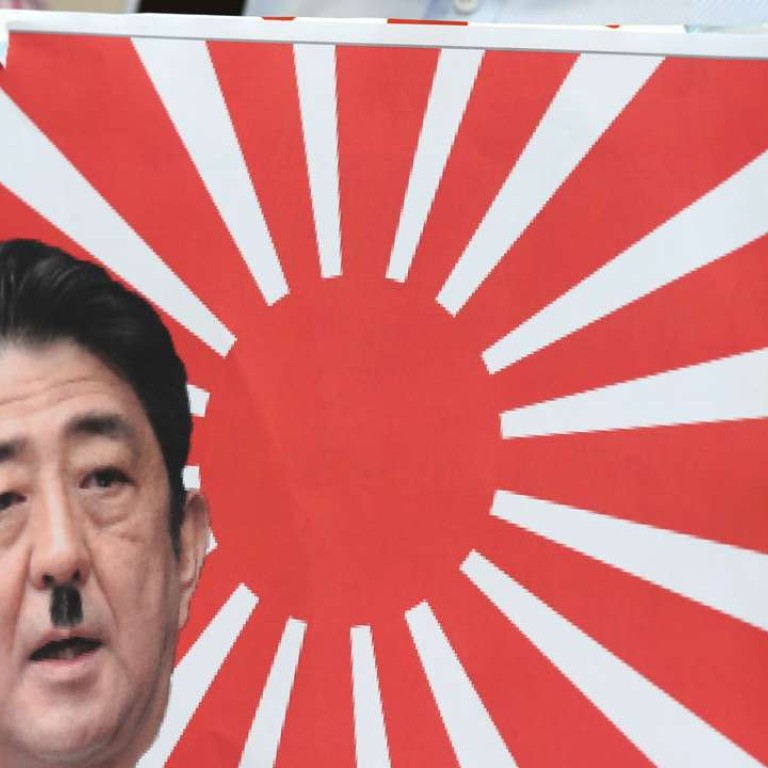
China cannot forgive Japan for wartime atrocities until Tokyo acknowledges wrongdoing
Mitsubishi has done the right thing in reaching a settlement with victims of its own dark past; it’s high time Shinzo Abe does the same
Any thaw in the icy relations between China and Japan will require a seismic shift by Japanese leaders in facing up to their country’s wartime history. The meaningful apology demanded by Chinese for atrocities committed by imperial forces during invasion and occupation has been repeatedly dodged by Prime Minister Shinzo Abe. High-level talks with President Xi Jinping (習近平) could take place when the annual G20 summit is held in Hangzhou (杭州) in September, but they would achieve little unless there is a willingness to own up to past wrongdoing. A sense of what is required was shown recently by Mitsubishi Materials in reaching a settlement over forced labour.
The Japanese company, formerly known as Mitsubishi Mining, last month gave an apology and signed an agreement to compensate up to 3,700 Chinese forcibly taken to Japan in 1942 to work in its mines and factories. Survivors or the families of the victims will each receive 100,000 yuan (HK$115,000) and monuments will be built in memory of those who died. They were among more than 38,000 slave labourers who toiled in appalling conditions for 35 firms; 7,000 did not survive. Two construction companies have previously struck similar deals, but there was a symbolic difference this time with a senior official going to Beijing to make the offer.
Chinese have been seeking an apology and settlement from the Japanese government since the 1990s. But the Supreme Court of Japan has repeatedly rejected their claims on the grounds of state immunity. Judges have cited a deal struck in 1972 when the countries normalised relations under which a then diplomatically weak Beijing waived claims for reparations. That left negotiating directly with the companies as the only option.
Mitsubishi’s actions have been long in coming and to some, do not go far enough. But its deal is still welcome and sets an example for firms that have yet to accept wrongdoing. Importantly, it also puts pressure on Abe and his administration to take a more critical and honest look at Japan’s militaristic past.
Japanese Foreign Minister Fumio Kishida’s trip to Beijing in April and meetings with Premier Li Keqiang (李克強) and other senior officials failed to ease tensions. Tokyo’s use of the G7 meeting last month to criticise China over the disputed Diaoyu Islands, known by Japanese as the Senkakus, and claims in the South China Sea, prompted understandable outrage. Mitsubishi has taken a significant step and in doing so, is educating the Abe government and Japanese about the right approach. Chinese forgiveness ultimately lies in heartfelt contrition.

